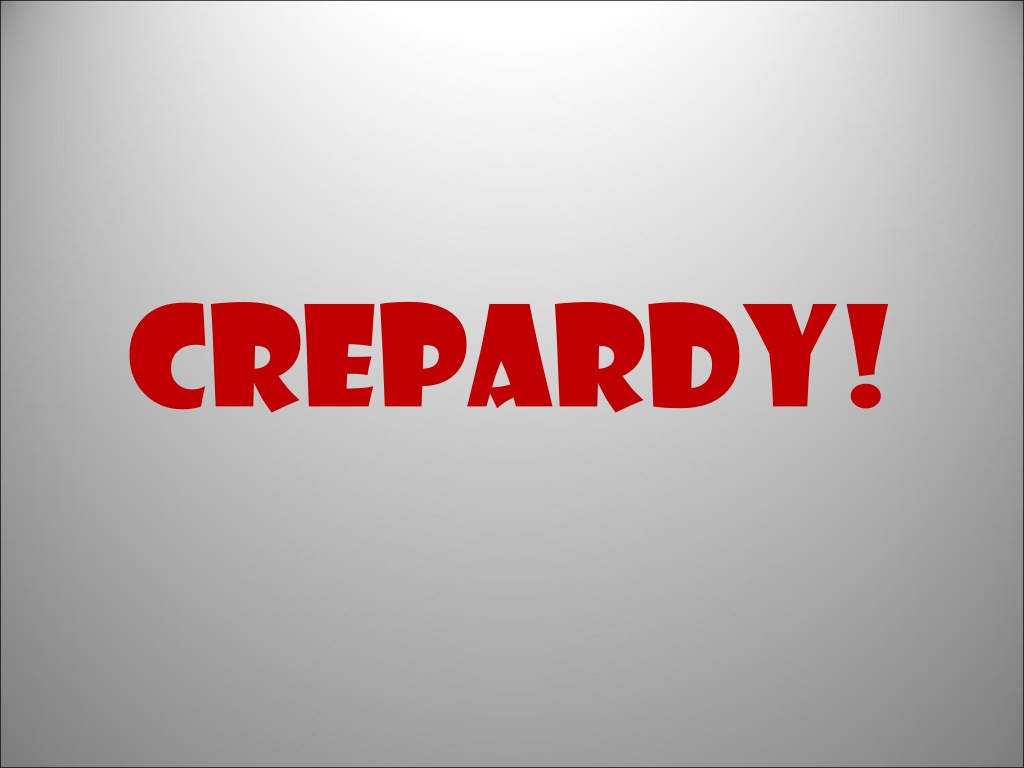CREPARDY!
Conservation Reserve Enhancement Program (CREP) including eligibility criteria, funding sources, and landowner requirements. Learn about the program's focus on salmon recovery and environmental conservation efforts in Washington State.
Download Presentation

Please find below an Image/Link to download the presentation.
The content on the website is provided AS IS for your information and personal use only. It may not be sold, licensed, or shared on other websites without obtaining consent from the author.If you encounter any issues during the download, it is possible that the publisher has removed the file from their server.
You are allowed to download the files provided on this website for personal or commercial use, subject to the condition that they are used lawfully. All files are the property of their respective owners.
The content on the website is provided AS IS for your information and personal use only. It may not be sold, licensed, or shared on other websites without obtaining consent from the author.
E N D
Presentation Transcript
Eligibility $$$ Misc. CREP 10 10 10 10 10 10 10 10 20 20 20 20 20 20 20 20 30 30 30 30 30 30 30 30 40 40 40 40 40 40 40 40 50 50
What does CREP stand What does CREP stand for? for? Answer: Conservation Reserve Enhancement Program
Why was CREP created? Why was CREP created? Answer: For Salmon s sake! CREP was created to assist in the recovery of salmon species that have been listed as threatened or endangered species under the federal Endangered Species Act
What year was CREP signed into effect? Answer: 1998 The first landowner was signed into contract 1999
How many stream miles are funded for Riparian Buffer installation in Washington State? Answer: 10,000 stream miles The funding for CREP is approved in Washington State for up to 10,000 stream miles and 100,000 acres
Who funds CREP? Who funds CREP? DOUBLE CREPARDY: What percentage is covered by What percentage is covered by each? each? Answer: CREP is funded by both the federal government and the state. Double CREPardy Answer: FSA pays 90% and SCC pays 10% +maintenance
True or False: All streams and rivers in Thurston County are eligible for CREP. Answer: FALSE The program was developed for salmon-bearing streams and rivers. There are certain approved rivers and streams. The list was last updated in 2009, but there is a process to add new stream miles
Name 2 eligibility requirements Landowner must have owned and/or operated land for 12 months Land must be cropland or marginal pastureland Property must border eligible stream segments (Salmon-bearing stream) Land must be able to support the required vegetation little to no erosion, flooding, etc.
How many eligible miles of streams and rivers are found within Thurston CD? The State of Washington? Answer: As of 2009, there were about 277 stream miles in Thurston CD and about 9600 in Washington State
We all know CREP installs Riparian Buffers. What are the other 4 restoration activities that CREP covers? Hedgerows: narrow strips of native shrubs on streams and channels Grass Filter Strips: Strips of grassy vegetation along stream segments that are upstream of salmon habitat Wetland Restoration: native wetland vegetation including upland buffers Pastureland Wetland Buffers: Vegetation planted on marginal pastureland that is adjacent to wetlands.
What is the FSA cost-share rate for CREP? Answer: 50% FSA reimburses 50% and the state 10% at the completion of each practice. Once the entire project is complete, FSA pays the remaining 40% in the form of a PIP payment.
How is the amount of yearly rental payment rate calculated for the riparian buffer? Answer: Soil rental rates x2 The rental rate is a weighted average of the three most common soil type rental rates, doubled, on each property. *Ag lands of state significance get 110%
What is the payment limitation for rental and incentive payments? Answer: $50,000/person/year This number includes the annual rental payments and the incentives, SIP s and PIP s
How much will CREP reimburse for a livestock watering facility? Answer: 50% not to exceed $2400- OR- $4800 per contract.
Insert Text for Question Category 3 50 Points
What is the length of a CREP contract? Answer: 10-15 years
What is your favorite species of salmon and why?
Name this plant: Answer: red-osier dogwood or Cornus sericea
True or False: Private land is the only eligible land for CREP Answer: FALSE State land is eligible for cost- share but not rental payments. Tribal land is eligible for both.
Insert Text for Question Category 4 50 Points
Insert Text for Question Category 5 10 Points
Insert Text for Question Category 5 20 Points
Insert Text for Question Category 5 30 Points
Insert Text for Question Category 5 40 Points
Insert Text for Question Category 5 50 Points


